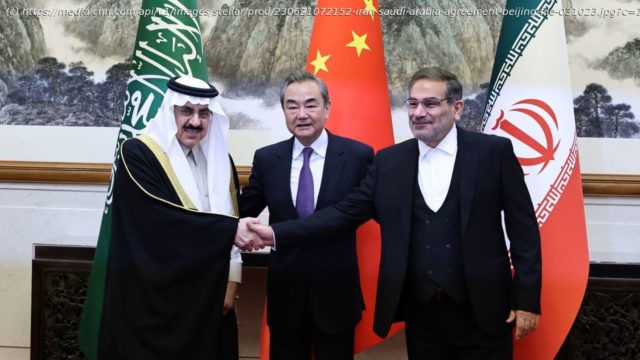Array
Editor’s Note: A version of this story appears in CNN’s Meanwhile in the Middle East newsletter, a three-times-a-week look inside the region’s biggest stories. Sign up here.
More young Arabs see China as an ally of their countries than the United States, a survey of regional youth has found.
The US ranks seventh among nations considered as friendly, compared to China, which ranked second in the Arab Youth Survey conducted by Dubai-based public relations firm ASDA’A BCW.
The findings show that support for China has gradually risen over the years as Beijing expands its footprint in the region. But they also reveal that as much as Arabs want the US to play a smaller role in the Middle East, many believe the superpower will continue to be the most influential actor.
Eighty percent of respondents consider China to be an ally of their country, while 72% found the US to be one. Support for both countries has grown from last year, when the US stood at 63% and China at 78%.
By contrast, the 2018 edition of the survey found that other Arab nations dominated the top five countries seen as allies, with the exception of Russia, which ranked fourth. Neither China nor the US were among the top five. The 2015 survey ranked the US second.
This year’s survey, in its 15th edition, included face-to-face interviews with 3,600 Arabs aged 18 to 24 across 53 cities in 18 Arab countries, reflecting evolving sentiments prompted by a changing political landscape in the region.
While the US continues to remain popular, other nations have overtaken it in ranking over the years. Turkey was found to be the country that most young Arabs considered an ally this year, at 82%.
Of those polled, 61% said they support US disengagement from the Middle East, with most support for this being recorded in North Africa and the Levant.
Arab states, particularly those in the Gulf, have been frustrated at what they see as the US’s waning interest in the region, and have in recent years begun charting their own foreign policy.






